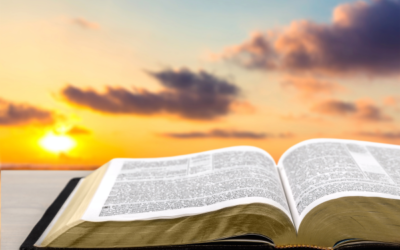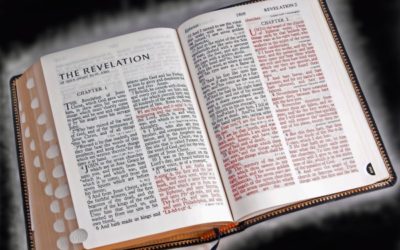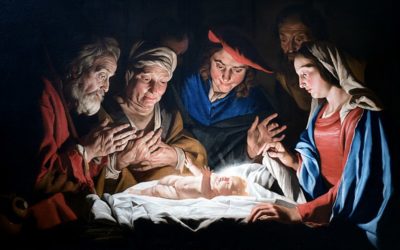In August 1831 while Joseph Smith was still in Jackson County, Missouri, he received additional revelations to help guide the Saints who were living there and throughout the Church. Two revelations, which today are sections 58 and 59 of the Doctrine and Covenants, contain important principles for guiding us in modern times.
Doctrine and Covenants 58
Not long after the Prophet Joseph and his companions reached Jackson County, the Colesville, New York, Saints arrived. Initially, they had been directed to settle on property in Ohio that had been offered to the Church, but the owner revoked his offer, and the Lord in a revelation had told them to proceed to Zion (see section 54).
Today, we often think of the Church’s first pioneers as those who crossed the plains in 1847 after leaving Winter Quarters. But the early pioneers who left New York to travel to Ohio and then on to Missouri traveled a distance further than from Winter Quarters to the Salt Lake Valley, and they encountered many hardships in their travel.
In the early part of what is now section 58, the Lord commends those who “keepeth my commandments, whether in life or in death,” explaining, “he that is faithful in tribulation, the reward of the same is greater in the kingdom of heaven” (verse 2).
The Saints at that time still held to a view of heaven they had brought with them from the Protestant churches they attended before joining the Church. The Lord had not yet provided the revelation on the three degrees of glory that is now section 76. In section 58, the Lord tells the members of the new Church that they do not yet comprehend “the design of your God concerning those things which shall come hereafter, and the glory which shall follow after much tribulation” (verse 3).
“For after much tribulation come the blessings,” He promises. “Wherefore the day cometh that ye shall be crowned with much glory” (verse 4).
The Lord told the Missouri Saints, including those from Colesville, that they had the honor of “laying the foundation, and in bearing record of the land upon which the Zion of God shall stand” (verse 7).
To Edward Partridge, the bishop in Zion, the Lord gave directions “to be a judge in Israel” (verse 17) “to judge his people by the testimony of the just, and by the assistance of his counselors, according to the laws of the kingdom which are given by the prophets of God” (verse 18).
To those who might wonder how to reconcile the laws of God and man, the Lord gave an answer. “Let no man break the laws of the land,” He commanded, “for he that keepeth the laws of God hath no need to break the laws of the land” (verse 21). The Lord would come, He said, but the Saints were to “be subject to the powers that be, until he reigns whose right it is to reign” (verse 22).
In previous revelations, including what are now sections 20 and 42 of the Doctrine and Covenants, the Lord had given laws for the government of the Saints. “Behold,” the Lord emphasized in section 58, “the laws which ye have received from my hand are the laws of the church, and in this light ye shall hold them forth” (verse 23).
In addition to keeping these laws, however, the Lord expected the Saints to exercise righteous initiative. “For behold,” the Lord said, “it is not meet that I should command in all things; for he that is compelled in all things, the same is a slothful and not a wise servant; wherefore he receiveth no reward. Verily I say, men should be anxiously engaged in a good cause, and do many things of their own free will, and bring to pass much righteousness” (verses 26‒27).
The Lord gave specific commandments and direction to Bishop Partridge, Martin Harris, and William Phelps, calling some of them to repent where necessary (verses 24‒41).
Repentance is a basic principle of the gospel, and the Lord used the revelation to teach more about it to the members of the still very young Church.
“Behold,” the Lord taught, “he who has repented of his sins, the same is forgiven, and I the Lord, remember them no more. By this ye may know if a man repenteth of his sins—behold, he will confess them and forsake them” (verses 42‒43).
Now that the location of the land of Zion had been revealed by the Lord, many people in the Church wanted to gather there and help to build the city of God. The Lord used section 58 to explain that the gathering had to be done in order. Those who had not been specifically called to go to Zion had other responsibilities they needed to fulfill first.
For them, “the time has not yet come, for many years, for them to receive their inheritance in this land . . . only as it shall be appointed unto them of the Lord” (verse 44). Instead, the elders who were not directed to be in Zion were responsible to do missionary work, to “push the people together from the ends of the earth” (verse 45).
They were to “bear testimony of the truth in all places” (verse 47) and “build up churches” (verse 48), or what today we would call branches.
An agent would be appointed “to receive moneys to purchase lands in Zion” (verse 49), and Sidney Rigdon was directed by the Lord to “write a description of the land of Zion, and a statement of the will of God, as it shall be made known by the Spirit unto him,” to encourage Saints to send funds to the agent “to purchase lands for an inheritance for the children of God” (verse 50‒51).
Once they had acquired land for the settlement of the Saints, the Lord directed that next “let there be workmen sent forth of all kinds unto this land, to labor for the saints of God” (verse 54).
“Let all things be done in order,” the Lord commanded (verse 55). “And let the work of the gathering be not in haste, nor by flight; but let it be done as it shall be counseled by the elders of the church” (verse 56).
The Lord also commanded Sidney Rigdon to dedicate the land “and the spot for the temple, unto the Lord” (verse 57), and call a conference of the Saints. After that, Joseph, Sidney, and Oliver Cowdery were to return with others to Ohio “to accomplish the residue of the work which I have appointed unto them” (verse 58).
On the long road home, they were all to “bear record by the way” (verse 59), for “the gospel must be preached unto every creature, with signs following them that believe” (verse 64).
For more on the history of this section, click here.
Doctrine and Covenants 59
Joseph Smith received the revelation that is now section 59 of the Doctrine and Covenants on August 7, 1831. In the previous revelation, the Lord had blessed the obedient who keep “my commandments, whether in life or in death,” and on this day, one of the Colesville Saints, Polly Peck Knight, passed away, having reached Zion. She was the wife of Joseph Knight Sr., whose horse and wagon Joseph and Emma had taken to the Hill Cumorah when Joseph received the plates from Moroni.
The August 7 revelation began, “Behold, blessed, saith the Lord, are they who have come up unto this land with an eye single to my glory, according to my commandments. For those that live shall inherit the earth, and those that die shall rest from all their labors, and their works shall follow them; and they shall receive a crown in the mansions of my Father, which I have prepared for them.” (Verses 2‒3.)
The Lord promised blessings to the obedient who reached Zion, including “the good things of the earth” (verse 3). He also promised they would be “crowned with blessings from above, . . . and with commandments not a few and with revelations in their time” (verse 4).
Having promised them commandments and revelations to bless their lives, the Lord repeated the two great commandments: “Thou shalt love the Lord thy God with all thy heart, with all thy might, mind, and strength; and in the name of Jesus Christ thou shalt serve him. Thou shalt love they neighbor as thyself.” (Verses 5‒6.)
In addition to recounting some of the Ten Commandments (verse 6), He commanded the Saints to “thank the Lord thy God in all things” (verse 7). The sacrifice He required is “a broken heart and a contrite spirit” (verse 8).
The revelation was given on a Sunday, and in it the Lord spoke at length on how to honor the Sabbath. This instruction was particularly appropriate on this day because Independence was a frontier town and jumping off place for explorers and other people going west at the time. Those who migrated there included people who used their Sundays to gamble, race horses, and gather at taverns.
In contrast, the Saints were directed by the Lord to “go to the house of prayer and offer up thy sacraments” (verse 9), “rest from your labors,” and “pay thy devotions unto the Most High” (verse 10). They were to worship God “on all days and at all times” (verse 11), but the Sabbath was a special day of worship and repentance (verse 12).
Food preparation—particularly cooking—were time-consuming and sometimes difficult tasks in those days on the frontier, and the Lord commanded the Saints to prepare their food “with singleness of heart” (verse 13). He also promised that if they kept the Sabbath “with cheerful hearts and countenances” but not lightmindedness, “the fulness of the earth” would be theirs. That included plants and animals and all good things “for food or for raiment, or for houses, or for barns, or for orchards, or for gardens, or for vineyards . . . both to please the eye and to gladden the heart . . . and to enliven the soul” (verses 15‒19).
But all these gifts were “to be used, with judgment, not to excess, neither by extortion” (verse 20).
Most importantly, the righteous, including presumably Polly Knight, would receive their “reward, even peace in this world, and eternal life in the world to come.”
For more on the history of this section, click here.
Credit for image at top of post: Detail from Joseph Smith’s plat of the City of Zion, public domain, copied from https://en.wikipedia.org/wiki/Temple_Lot#/media/File:Zionplat2.jpg (accessed May 23, 2021).



